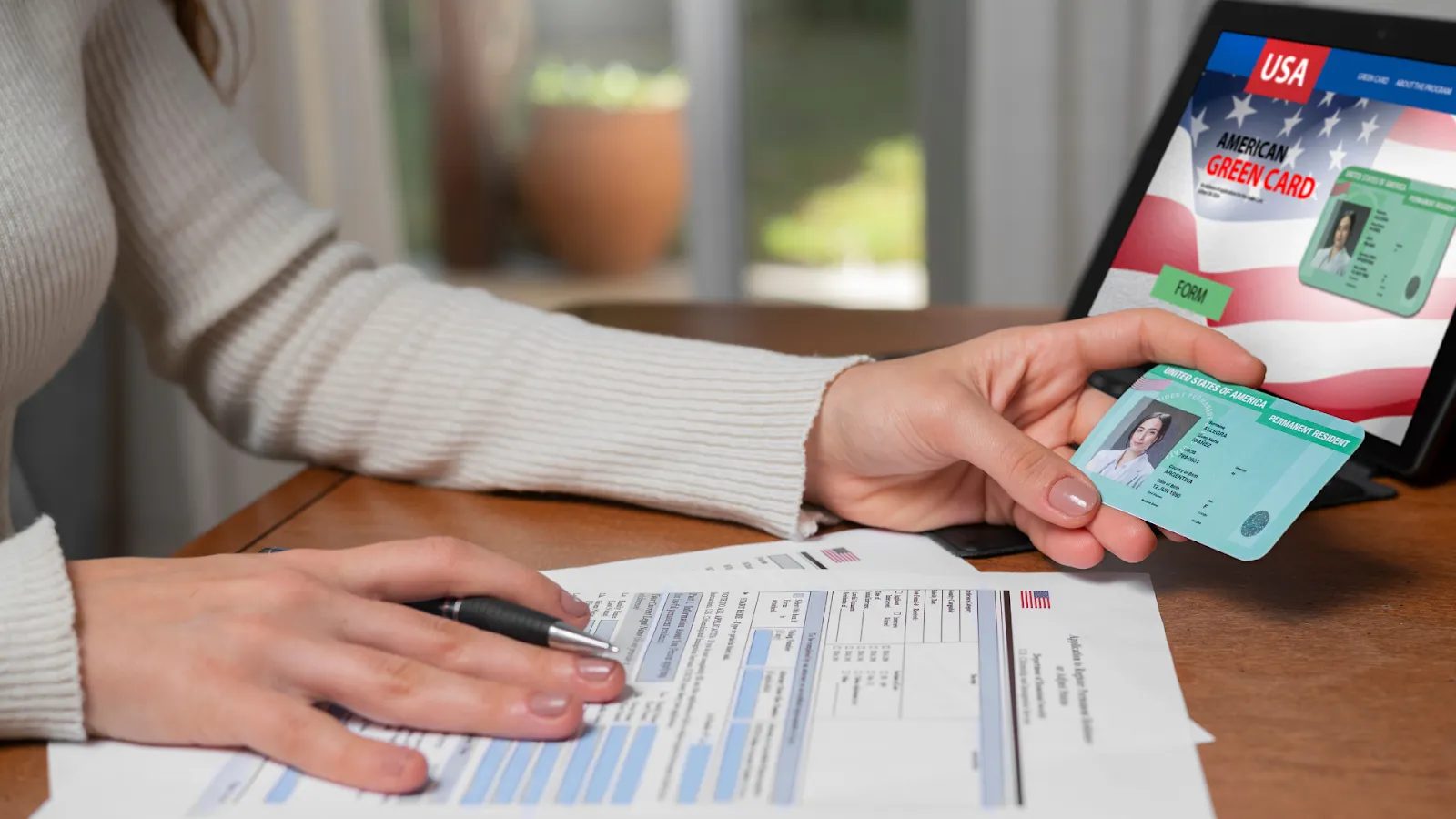Jul 28, 2025
Money Transmitter License Steps and Requirements

By Fraxtional LLC

If your company is involved in moving funds through payments, wallets, or crypto, you may be required to obtain a Money Transmitter License (MTL) to operate legally in the United States. Licensing is handled at the state level, and the process can be complex, especially for growing companies expanding across jurisdictions.
In this blog, we break down the essential steps and requirements to help you understand what it takes to secure and maintain an MTL. Whether you're a FinTech founder preparing to scale, a newly funded Series A or B company, or a risk officer building a compliance strategy, this guide provides practical direction.
You’ll learn what regulators expect, how to prepare your application, and what ongoing compliance involves, so your business can stay audit-ready and focused on growth.
TL;DR
- A Money Transmitter License (MTL) is legally required for U.S. businesses moving money—including crypto, remittances, and digital wallets, across state or international lines.
- Licensing is state-specific, meaning you’ll need separate applications, fees, and compliance efforts for each state in which you operate.
- Federal registration with FinCEN as a Money Services Business (MSB) is mandatory before pursuing any state licenses.
- Core application requirements include a detailed AML/KYC compliance program, surety bonds, financial disclosures, and background checks on key personnel.
- Ongoing compliance involves annual audits, maintaining financial health, updating policies, and monitoring transactions to stay license-eligible.
What Is a Money Transmitter License?

A Money Transmitter License (MTL) is a regulatory requirement in the United States for businesses that engage in the transmission of money or monetary value. This includes companies involved in sending funds, selling or issuing payment instruments, and facilitating money transfers, whether in fiat or cryptocurrency.
MTLs are issued at the state level, and each state defines "money transmission" slightly differently. Most states require a license if your business receives and transmits money or provides payment services to third parties.
Common business models that may require an MTL:
- Digital wallets and mobile payment apps
- Cryptocurrency exchanges and custodians
- Remittance providers
- Peer-to-peer payment platforms
- Payment processors or gateways
Failing to obtain an MTL where required can lead to enforcement actions, fines, or forced shutdowns. For companies looking to scale or secure banking relationships, demonstrating proper licensing is often a key requirement.
Now that you know what an MTL is, let’s take a closer look at the types of activities that qualify as money transmission and what these businesses typically do.
What Do Money Transmitters Do?

As someone working in FinTech, crypto, or payments, understanding what money transmitters do is essential. Money transmitters provide services that allow you and your customers to send, receive, and manage funds. They act as intermediaries in both domestic and international transactions and must follow strict regulatory requirements.
Knowing whether your business activities qualify as money transmission will help you determine if you need a license and guide your overall compliance strategy.
Core Functions of Money Transmitters:
- Funds Transfer
You can facilitate moving funds between senders and recipients. This involves accepting money from one party and delivering it to another through various methods like bank transfers, mobile apps, or agent networks. - International Remittances
You help individuals and businesses send money across borders. This service is especially valuable for expatriates or companies managing international payments. - Payment Services
You may support online and mobile payments, including bill payments, e-commerce transactions, and peer-to-peer transfers. - Currency Exchange
If your business deals with multiple currencies, you might offer currency conversion services to support international transactions for your customers. - Services for the Unbanked and Underbanked
You provide vital financial services for people without access to traditional banks. This can include cash transfers, stored value accounts, and bill payments, which promote financial inclusion. - Compliance and Oversight
You are responsible for establishing and maintaining compliance programs. This means following Anti-Money Laundering (AML), Know Your Customer (KYC), and transaction monitoring requirements, as well as reporting to regulators when necessary.
Also Read: How to Create an Effective Compliance Program: Key Steps & Best Practices
Money Transmitter License Requirements

If you're planning to launch a money transmission business in the United States, you'll need to secure both federal and state-level licenses. Each regulatory layer comes with its own set of obligations, and staying compliant requires careful planning, financial transparency, and detailed documentation.
Understanding Federal and State Requirements
State Licensing Obligations
Every U.S. state sets its own rules for money transmitter licenses. As an applicant, you'll need to meet each state’s unique requirements, which may include:
- Submitting a license application
- Undergoing background checks
- Providing a surety bond
- Demonstrating financial stability
If you plan to operate in multiple states, be prepared to manage separate filings and ongoing renewals for each jurisdiction.
Federal MSB Requirements
At the federal level, your business will be classified as a Money Services Business (MSB) and must register with the Financial Crimes Enforcement Network (FinCEN). You’ll also be required to:
- Develop and implement an Anti-Money Laundering (AML) compliance program
- Follow Know Your Customer (KYC) protocols
- Maintain detailed transaction records
- Report suspicious activity as required by law
What You’ll Need for Your License Application
To apply for a state money transmitter license, you’ll need to gather and submit a range of documents. These may vary by state but typically include the following:
MSB Registration Confirmation
You must show proof that your business is registered with FinCEN as a Money Services Business.
AML/KYC Compliance Program
This should outline your approach to identifying customers, monitoring transactions, and reporting suspicious activities. States will expect this to be clearly documented and tailored to your business model.
Surety Bond Documentation
You’ll need to provide a surety bond to satisfy financial responsibility requirements. Bond amounts vary by state and are usually based on your business’s transaction volume and financial health.
Comprehensive Business Plan
Your business plan should include your financial model, target customers, service offerings, and compliance strategy. States want to see that your business is well thought out and operationally sound.
Financial Statements
You’ll need to demonstrate financial health by submitting balance sheets, income statements, and documentation of liquidity and capital reserves.
Ownership and Management Details
States require background checks and full disclosures for executives, shareholders, and key personnel to ensure the business is managed responsibly.
State-Specific Forms and Fees
Each state has its own forms and fee schedules. If you're applying in multiple states, you’ll need to complete each application individually and track deadlines for fees and renewals.
Operational and Compliance Procedures
You may also be asked to provide an overview of how you will operate the business and stay compliant with state laws. This includes internal audits, financial controls, and consumer protection measures.
Proving Financial Stability
Your financial standing is a key part of the application. Regulators need to see that your business can support its operations and protect consumer funds.
Minimum Net Worth
Many states have minimum net worth requirements that range from $100,000 to $500,000. This is to ensure you have the financial backing to absorb potential risks or losses.
Liquidity and Capital Reserves
You’ll need to prove you have enough liquid assets to cover day-to-day operations and any unexpected financial needs. This helps regulators confirm your business can remain operational under financial stress.
Surety Bond Requirements
Bond amounts usually range from $10,000 to $500,000. Several factors can influence this amount, such as:
- Your business’s transaction volume
- The financial health of your company
- Whether you deal in high-risk activities like cryptocurrency
Ongoing Financial Reporting
To maintain your license, most states require you to file audited financial statements annually. These must be prepared by an independent CPA and confirm your ongoing financial health and compliance.
Not every business that moves money needs an MTL, but many do. Here’s how to know whether your operations require one.
5 Key Steps to Apply for a Money Transmitter License

Applying for a money transmitter license can be complex due to varied regulatory requirements. This step-by-step guide will help you navigate the process efficiently.
Step 1: Register with FinCEN as a Money Services Business (MSB)
You must first register with FinCEN as an MSB to comply with federal anti-money laundering (AML) regulations.
- Complete FinCEN Form 107: Submit this registration electronically via the FinCEN website.
- Provide Business Information: Include your business name, address, services offered, and details of key personnel.
- Renew Every Two Years: Registration must be renewed biennially to avoid penalties.
Once registered, you will be monitored for federal compliance requirements, such as transaction reporting, appointing a compliance officer, and employee training.
Step 2: Submit State Money Transmitter License Applications
Money transmission is regulated at the state level, so you need to apply for licenses in each state where you operate.
- Research Requirements: Each state has its own application process, fees, and documentation rules. Some states use the Nationwide Multistate Licensing System (NMLS), while others require direct applications.
- Prepare Documents: Typical documents include business plans, financial statements, AML/KYC compliance policies, key personnel details, certificates of good standing, and surety bond proofs.
- Pay Fees: Application fees vary widely and can range from hundreds to thousands of dollars per state.
- Allow Processing Time: Application reviews can take weeks to months, and some states may request additional information or conduct audits.
Step 3: Complete Background Checks and Develop Compliance Plans
States require background checks on owners, directors, and key executives, including fingerprinting and criminal history reviews.
- Compliance Plan: Submit a thorough compliance program detailing how you will meet regulatory standards. This should cover transaction monitoring, record-keeping, and customer due diligence.
- Employee Training: Many states require regular compliance training to ensure your staff stays informed about legal obligations.
Step 4: Obtain Surety Bonds and Prove Financial Stability
You must demonstrate your business’s financial responsibility to regulators.
- Surety Bonds: Most states require a surety bond as a financial guarantee. Bond amounts typically range from $10,000 to $500,000, depending on your transaction volume and risk profile.
- Financial Requirements: You may need to meet minimum net worth and liquidity standards to show you can sustain operations and fulfill obligations.
Step 5: Maintain AML and KYC Compliance
After licensing, ongoing compliance with AML and Know Your Customer (KYC) regulations is essential to prevent illicit activities.
- AML Program: Implement transaction monitoring systems to detect suspicious behavior and file Suspicious Activity Reports (SARs) with FinCEN when necessary.
- KYC Procedures: Verify customer identities by collecting and validating personal information, such as government-issued IDs.
Get in touch with the team at Fraxtional if you need expert assistance understanding the money transmitter licensing process. Our team can guide you through every step to ensure your business stays compliant and operates smoothly.
Money Transmitter vs. Payment Processor: Key Differences

Understanding the distinction between a money transmitter and a payment processor is essential for selecting the right compliance framework for your business. While both handle monetary transactions, their functions, regulatory obligations, and customer bases differ significantly.
Transaction Types
As a money transmitter, your role involves moving funds between parties. This includes person-to-person transfers, cross-border remittances, and business-related payments. These transactions may not always involve the purchase of goods or services.
As a payment processor, your focus is on enabling payment transactions between buyers and sellers. These typically involve credit card, debit card, digital wallet, and point-of-sale transactions. The primary purpose is the exchange of funds for products or services.
Regulatory Oversight
Money transmitters are subject to both federal and state regulatory requirements. This typically includes registration with FinCEN, obtaining state money transmitter licenses, and implementing Anti-Money Laundering (AML) and Know Your Customer (KYC) protocols.
Payment processors are also regulated, but the requirements depend on the jurisdiction and transaction types. These businesses must comply with payment network rules, consumer protection laws, and data security standards such as PCI DSS. In some cases, they may not be required to hold a money transmitter license but must still meet compliance expectations related to financial services.
Value-Added Services
Money transmitters may provide additional services such as bill payments, currency exchange, or financial solutions designed for individuals without access to traditional banking systems.
Payment processors typically offer services like fraud prevention, chargeback handling, recurring billing, and transaction reporting. These tools are designed to support merchants in managing high volumes of payment activity efficiently and securely.
Customer Base
Money transmitters usually serve individuals and businesses that need to transfer funds domestically or internationally, especially in scenarios where banking access is limited or unavailable.
Payment processors support businesses that accept payments for goods or services. This includes ecommerce companies, service providers, retailers, and digital platforms seeking seamless and secure transaction capabilities.
If your business activities fall under the scope of money transmission, the next step is understanding what it takes to get licensed in 2025.
Who Needs a Money Transmitter License?
If you’re involved in transmitting money as part of your business, you will likely need a money transmitter license. Here are some activities that typically require a license:
- Selling or issuing payment instruments: This includes selling or issuing checks, money orders, traveler’s checks, or stored value cards.
- Receiving money for transmission: If you accept money from customers with the intention of sending it to someone else, either within your country or internationally, you need a license.
- Transmitting money: Sending money on behalf of your customers through methods like wire transfers or electronic funds transfers requires licensing.
- Currency exchange or dealing: Buying or selling foreign currencies for customers usually falls under licensing requirements.
- Operating a payment platform: If you run an online platform or mobile app that facilitates money transfers between users, a license is generally necessary.
Some entities are usually exempt from needing a money transmitter license, including:
- Banks and credit unions: Since these are already regulated by banking authorities, they typically don’t require a separate license.
- Government agencies: Federal, state, and local government bodies are generally exempt when conducting official business.
- Certain agents of licensees: Agents working under a licensed money transmitter might not need their own license but must comply with the supervising entity’s policies.
If you’re unsure whether your business requires a money transmitter license or need help understanding the complex application process, don’t risk costly delays or compliance issues. Contact Fraxtional today for expert guidance and tailored support to secure your license quickly and confidently.
Ready to apply? Here’s a step-by-step overview of how to understand the licensing process, from federal registration to state filings.
Reporting Obligations for Money Services Businesses (MSBs)
As a Money Services Business, including if you operate as a money transmitter, you must meet strict reporting requirements to help regulators monitor financial activity and prevent illegal transactions. Here’s what you need to know about your ongoing reporting obligations:
1. MSB Call Reports
You are required to submit quarterly MSB Call Reports. These reports provide regulators with key information about your business activities, including:
- Transaction volumes broken down by service type
- Geographic data showing where transactions occur
- Compliance efforts such as your anti-money laundering (AML) programs
Most MSBs submit these reports through the Nationwide Multistate Licensing System (NMLS), which helps simplify compliance across multiple states. However, be aware that some states may have additional reporting requirements.
2. Suspicious Activity Reports (SARs)
You must file Suspicious Activity Reports (SARs) with FinCEN whenever you detect transactions that may involve money laundering, fraud, or terrorist financing. Common triggers include:
- Unusual transaction patterns, such as large or structured transfers designed to avoid reporting thresholds
- Customer behavior that does not align with their typical financial profile
- International transactions involving high-risk countries with weak AML controls
SARs must be submitted within 30 days of identifying suspicious activity. You are also required to keep SAR records for at least five years to support future audits or investigations.
3. Currency Transaction Reports (CTRs)
You need to file Currency Transaction Reports (CTRs) for any cash transaction exceeding $10,000 in a single day. This applies to deposits, withdrawals, currency exchanges, and other cash movements.
CTRs, like SARs, are submitted to FinCEN and help track large cash flows that could be connected to illicit activities.
4. Recordkeeping Requirements
You must maintain detailed records of all transactions, customer information, and financial activities as part of your compliance program. These records are essential for:
- Demonstrating regulatory compliance during state and federal audits
- Verifying the legitimacy of transactions if disputes or questions arise
The typical retention period for these records is five years, though some states may require longer retention.
Conclusion
Getting a Money Transmitter License in the U.S. can feel overwhelming, especially with different rules in each state and added layers for crypto businesses. But understanding the basics, like federal registration, state requirements, and ongoing compliance, can make the process much more manageable. Taking the time to plan your licensing strategy early can help you avoid delays and stay on the right side of the law as you grow.
Need support with your MTL process? Fraxtional works with FinTech and crypto companies to simplify licensing and compliance. We’ll guide you through each step, from preparing applications to building strong AML and KYC programs.
Next Read: Enhancing Anti-Money Laundering Efforts with a Fraxtional Approach
FAQs
Yes. Money Transmitter Licenses are issued at the state level, so if your business operates or serves customers in multiple states, you’ll need to apply for and maintain a license in each of those states. There is no single nationwide MTL.
The timeline can vary by state, but on average, it may take 3 to 12 months. Factors like application completeness, background checks, and your financial standing can impact processing time. Applying in multiple states can extend the timeline due to varying requirements.
No. FinCEN registration is a federal requirement for all Money Services Businesses (MSBs), while an MTL is a state-level license. You must register with FinCEN and apply for state licenses to operate legally.
Operating without the required licenses can lead to hefty fines, cease-and-desist orders, and even criminal penalties. It can also damage your ability to build banking relationships or raise funds from investors.
If your business holds, transfers, or exchanges crypto on behalf of users, it likely qualifies as a money transmitter in many states. Because definitions vary, you should conduct a legal analysis for each state you operate in—or consult a licensing expert to avoid misclassification.
blogs
Don’t miss these
Let’s Get Started
Ready to Strengthen Your Compliance Program?
Take the next step towards expert compliance solutions. Connect with us today.




